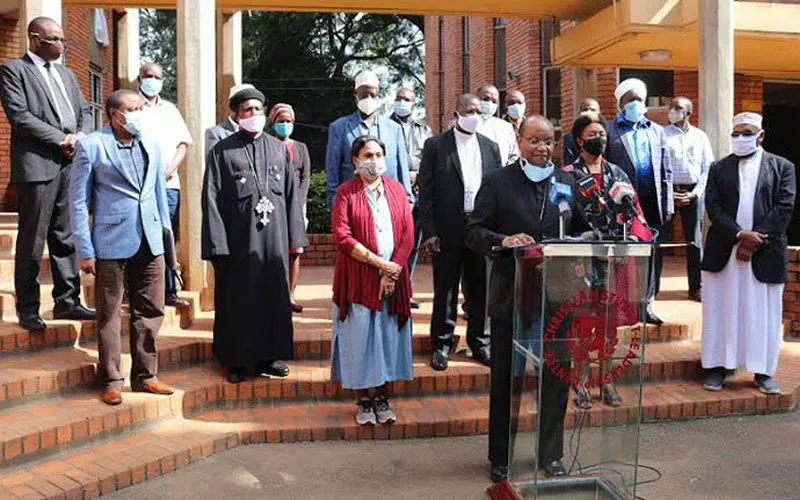Kenya has recorded 122,040 cases of the virus including 2,023 deaths and 90,376 recoveries. Since January, the country has been experiencing a rapid increase in new positive cases of COVID-19.
On March 12, authorities in the country confirmed the upsurge in the new positive cases and deaths as part of the third wave of the pandemic in the East African country.
In their March 23 statement signed by Archbishop Anthony Muheria of Kenya’s Catholic Archdiocese of Nyeri, the members of the Interfaith Council urge Kenyans to exercise caution amid the third wave of the coronavirus.
“At this time when the threat is at its highest, we must be even more demanding and strict in all the preventive measures, already issued by the Interfaith Council and Ministry of Health in our places of Worship,” they say.
“Many of the infections are taking place in the Funeral setting,” the representatives of religious leaders in Kenya say, calling on the people of God in the country to “avoid attendance to Funerals, except for close relatives.”
They direct that the number of attendants at funerals be a maximum of 100 persons and call on religious leaders presiding over burial ceremonies to insist on the adherence of the Council’s guidelines and the measures issued by the Ministry of Health during the preparation days and during the Funeral itself.
The members of the Council also urge religious leaders to enforce social distancing in places of worship, cleaning of hands before celebrations, sanitizing, and wearing of facemasks by all participating in public worship.
Looking toward the Holy Week and Easter celebrations, the members of the Interfaith Council say, “In a special way, during the forthcoming weeks when several faith traditions have solemn periods, all gatherings must adhere to these guidelines and no processions or night vigil services are allowed.”
They also encourage taking COVID-19 vaccination saying, “We urge religious leaders to encourage our people, especially the elderly, to take this second shield of protection by going to be vaccinated.”
The vaccine, which arrived in the country on March 3 “will assist greatly in containing the spread of the Infections,” they say.








